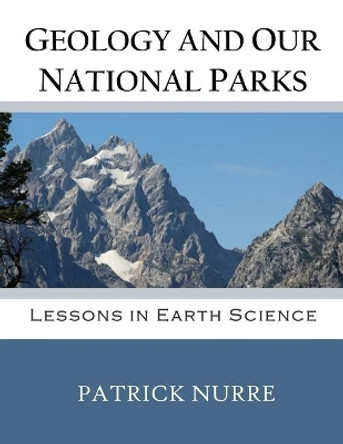Description
About the Author
Graham Park is Emeritus Professor of Tectonic Geology at the University of Keele. He is the author of the best-selling Introducing Geology (now in its third edition), The Making of Europe: A geological history and the award-winning Mountains: The origins of the Earth's mountain systems also published by Dunedin Academic Press.
Reviews
'This volume is a welcome history of major geological 'success stories', based on the solid, steady fieldwork and research of dedicated scientists through more than a hundred years. The book's dust jacket quotes James Hutton's "no vestige of a beginning - no prospect of an end." As geologists have come to realise, geological understanding comes both from slow, accumulative processes and from periodic and arbitrary catastrophic occurrences that drive the shaping of the Earth. Prof. Graham Park's text relates how geological research does not necessarily flow steadily onwards in small incremental advances, but both by accumulated, hard-won evidence punctuated by a series of significant discoveries - in facts and in realisations - and of interpretations... As an archaeologist, historian and keen student of the history of science, this book will take a prominent place among my stratified bookshelf foresets and bedforms. At GBP24.99 for the hardback it's worth every penny.' Proceedings of the OUGS'Impressively informed and informative, expertly organized and presented, enhanced for academia with the inclusion of numerous illustrations, a sixteen page Glossary, an eight page listing of References, and an eight page Index, "Breakthroughs in Geology: Ideas That Transformed Earth Science" is an especially and unreservedly recommended addition to community, college, and university library Earth Science & Geology collections and supplemental studies lists.' Midwest Book Review 'What does impress me a whole lot about this book is the clarity of the writing - it is concise, easy to read and generous in spirit seeking to see that all those who put their shoulders to the wheel get their due recognition. There are also nice little asides that give us an insight into the characters involved and the events that shaped them - be it the war service of Derek Flinn or the agricultural background of James Hutton. The book also represents a really good way to get a basic understanding of a whole range of key concepts and processes in the Earth Sciences. As a result I can see this as a text that in the UK would be really useful for undergraduates at a First Year level - and also those interested in understanding how Geology differs in its rationale from many other physical sciences. Central to this is the fundamental importance of the geological record and the need to develop a historical approach in addition to the more traditional causal scientific method. The volume shares much in common with the author's other text books: it is well illustrated (in colour), succinctly and engagingly written and should be understandable to the reasonably well-informed layperson. It also comes with an extensive glossary of technical terms and a nice collection of key references for each chapter. Retailing at about 25 pounds (35 dollars), it is in my opinion very good value and should be an essential purchase for any university library. But I would recommend it also to the general reader - if you wanted to find one book that concisely summarises and illustrates why the Earth Sciences is so diverse, eternally fascinating and downright bloody wonderful, this is it. I congratulate the author on a job well done.' Proceedings of the Geologists' Association
Book Information
ISBN 9781780460765
Author Park, Graham
Format Hardback
Page Count 279
Imprint Dunedin Academic Press
Publisher Liverpool University Press








